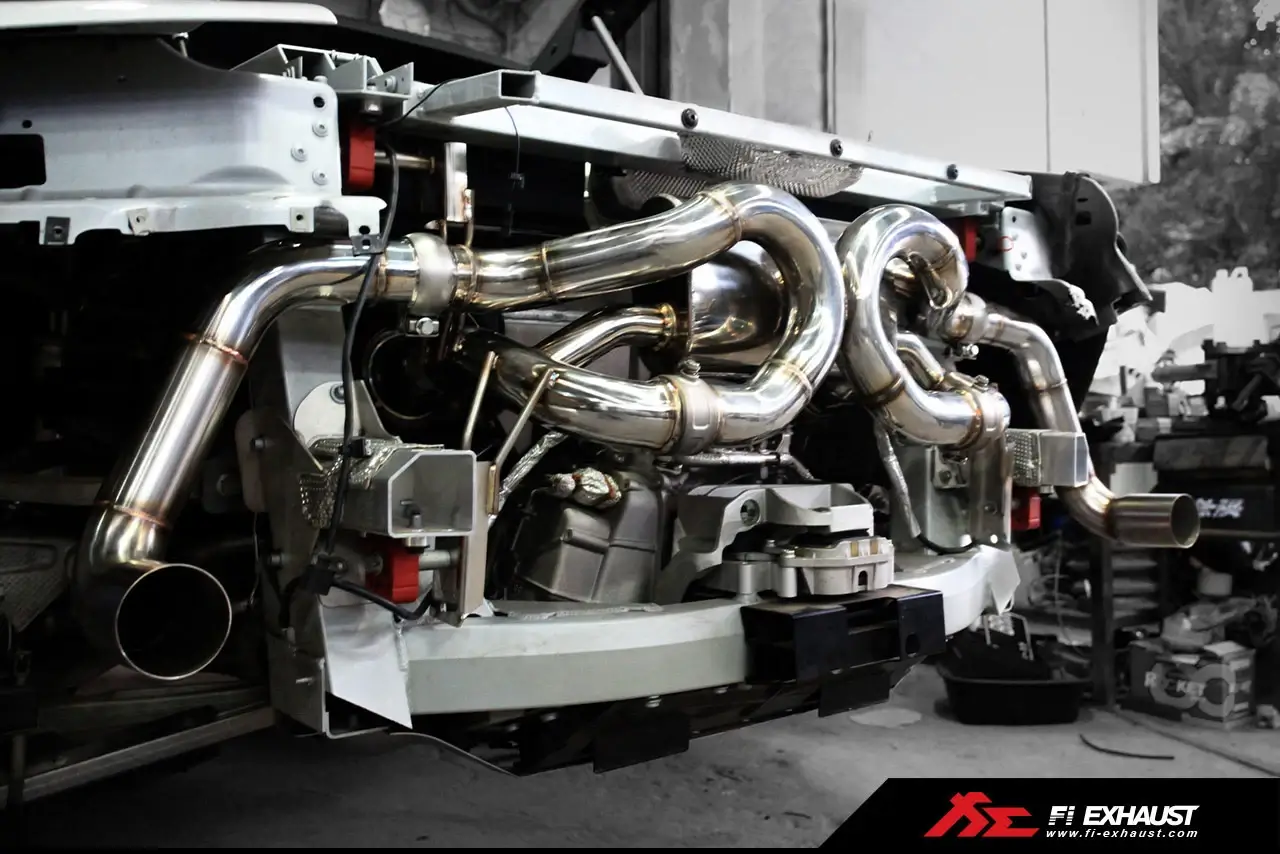Straight Pipe Exhaust vs. Muffler: Which One is Better for Your Vehicle?
If you are looking for ways to improve the sound and performance of your car, you might have considered changing your exhaust system. One of the most popular options is to install a straight pipe exhaust, which replaces the muffler and the catalytic converter with a straight pipe. But is this the best choice for your vehicle? In this article, we will compare the straight pipe exhaust with the muffler, and discuss the pros and cons of each option. We will also cover the legal and environmental aspects of straight pipe exhaust systems, and give you some tips on how to choose the right one for your car.
Straight Pipe Exhaust vs. Muffler pros and cons
- A straight pipe exhaust is a straight exhaust system from the exhaust manifold without a muffler, resonator, or catalytic converter. A muffler delete is a modification that removes only the muffler from the exhaust system
- A straight pipe exhaust is louder and more aggressive than a muffler delete. A muffler delete is still louder than the stock exhaust, but not as loud as a straight pipe exhaust
- A straight pipe exhaust can increase the performance of your car by reducing the back pressure and improving the flow of the exhaust gases. A muffler delete can also improve the performance, but not as much as a straight pipe exhaust
- A straight pipe exhaust can be illegal in some areas, as it can violate the noise and emission regulations. A muffler delete can also be illegal, depending on the local laws and the type of muffler you have
- A straight pipe exhaust can be cheaper than a muffler delete, as it requires less parts and labor. A muffler delete can be more expensive, depending on the quality and design of the muffler you choose
Legal aspects of straight pipe exhaust systems
Straight pipe exhaust systems can be illegal in some areas, as they can violate the noise and emission regulations. Noise regulations limit the maximum decibel level that a vehicle can produce, and emission regulations require vehicles to have a catalytic converter to reduce the harmful pollutants in the exhaust gases. Straight pipe exhaust systems can bypass or remove the catalytic converter, which can increase the emission of carbon monoxide, hydrocarbons, and nitrogen oxides. These pollutants can contribute to smog, acid rain, and global warming. Therefore, some states and countries have laws that prohibit or restrict the use of straight pipe exhaust systems on public roads.
Environmental aspects of straight pipe exhaust systems
Straight pipe exhaust systems can have negative impacts on the environment, as they can increase the fuel consumption and the emission of greenhouse gases and other pollutants. Fuel consumption can increase because straight pipe exhaust systems can alter the air-fuel ratio and the engine performance, which can affect the fuel efficiency. Greenhouse gases, such as carbon dioxide, can increase because of the higher fuel consumption and the lack of a catalytic converter. Other pollutants, such as carbon monoxide, hydrocarbons, and nitrogen oxides, can also increase because of the absence of a catalytic converter. These pollutants can harm the environment and the health of humans and animals.
Factors to consider while choosing straight pipe exhaust for your car
Here are some factors to consider:
- Your personal preference:
The most important factor is your personal preference for the sound and performance of your car. Some people like the loud and aggressive sound of a straight pipe exhaust, while others prefer the quieter and smoother sound of a muffler. You should choose the one that suits your taste and style.
- Your budget:
Another factor is your budget, as the cost of installing a straight pipe exhaust or a muffler delete can vary depending on the quality and design of the parts and the labor involved. Generally, a straight pipe exhaust can be cheaper than a muffler delete, as it requires less parts and labor. However, you should also consider the potential fines and penalties if your exhaust system is illegal in your area.
- Your location:
The last factor is your location, as the laws and regulations regarding the noise and emission of exhaust systems can differ from state to state and country to country. You should check the local laws and regulations before installing a straight pipe exhaust or a muffler delete, as you might need to pass an inspection or a test to prove that your exhaust system meets the standards. You should also consider the environmental impact of your exhaust system, as it can affect the air quality and the climate.
Conclusion
In conclusion, straight pipe exhaust and muffler delete are two popular options for modifying your exhaust system. They both have their advantages and disadvantages, depending on your personal preference, budget, location, and environmental impact. You should choose the one that best suits your needs and goals, and also complies with the local laws and regulations. However, before you make any changes to your exhaust system, you should consult a professional mechanic and do some research to ensure that you are making the right decision for your car.
Frequently Asked Questions
Q: What does a straight pipe exhaust do?
A straight pipe exhaust is a type of exhaust system that has no muffler, resonator, or catalytic converter. It allows the exhaust gases to flow freely from the engine to the tailpipe, without any restriction or filtration. A straight pipe exhaust can have some benefits, such as increased performance, improved sound, and reduced weight. However, it can also have some drawbacks, such as increased noise, emissions, and legal issues.
Q: Does a straight pipe give more power?
A straight pipe exhaust can increase the performance of your car by reducing the back pressure and improving the flow of the exhaust gases. However, the horsepower gain is usually small, typically around 5 to 10 horsepower.
Q: How much does a straight pipe cost?
Generally, the average cost of installing a straight pipe on your vehicle ranges between $300 and $800, with a labor cost of $100 to $200 if you want a professional to install it However, you should also consider the legal and environmental aspects of straight pipe exhaust systems, as they can violate the noise and emission regulations in some areas, and increase the fuel consumption and the emission of greenhouse gases and other pollutants13 Therefore, before you make any changes to your exhaust system, you should consult a professional mechanic and do some research to ensure that you are making the right decision for your car.
Q: Does straight pipe increase gas mileage?
Straight pipe exhaust systems can increase gas mileage by reducing back pressure and allowing the engine to breathe more freely. However, this may depend on the type of engine, the diameter of the pipe, and the driving style of the user. Some sources also claim that straight pipes can be harmful to the environment, the engine, and the ears of the driver and the bystanders.







